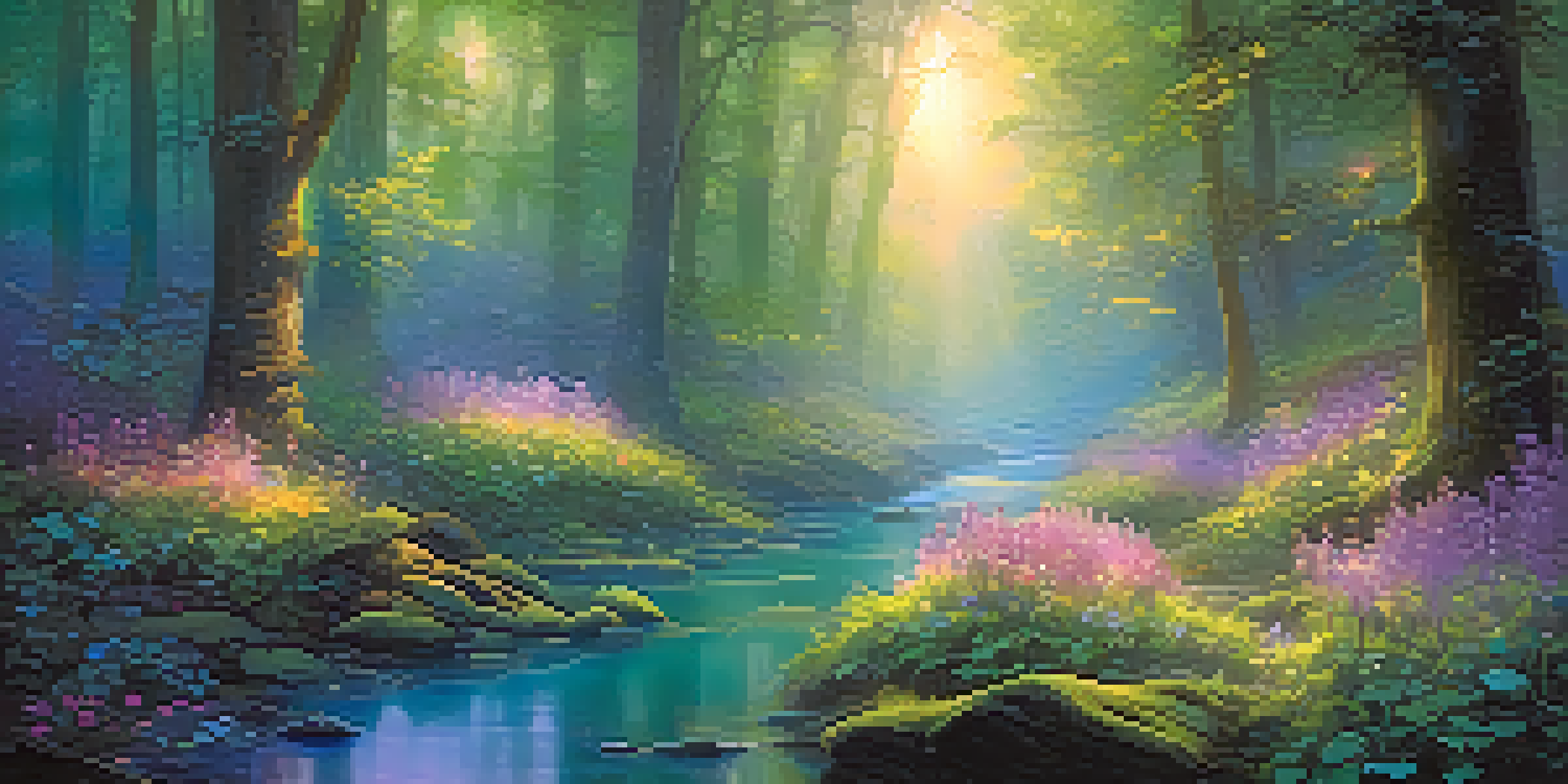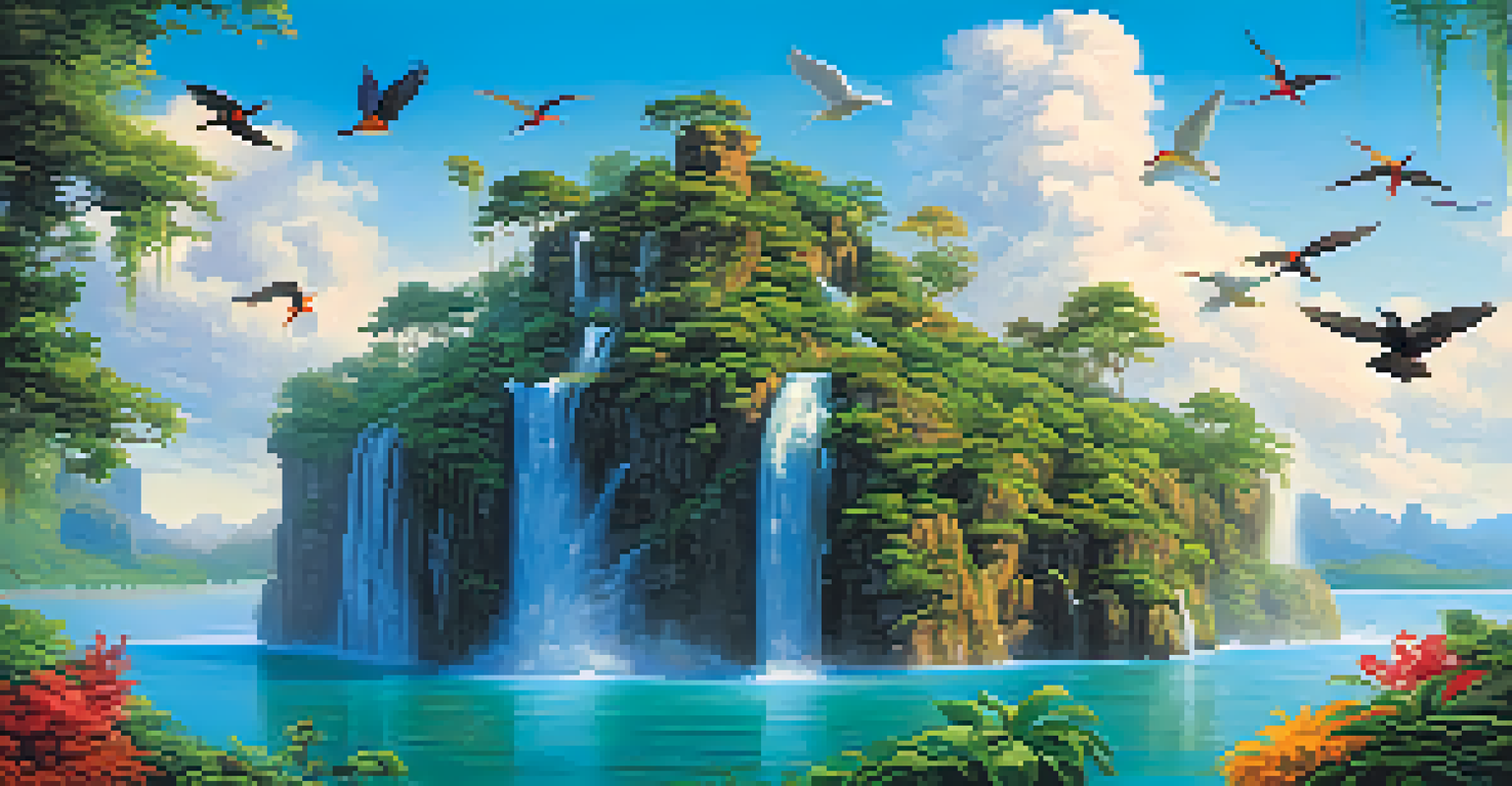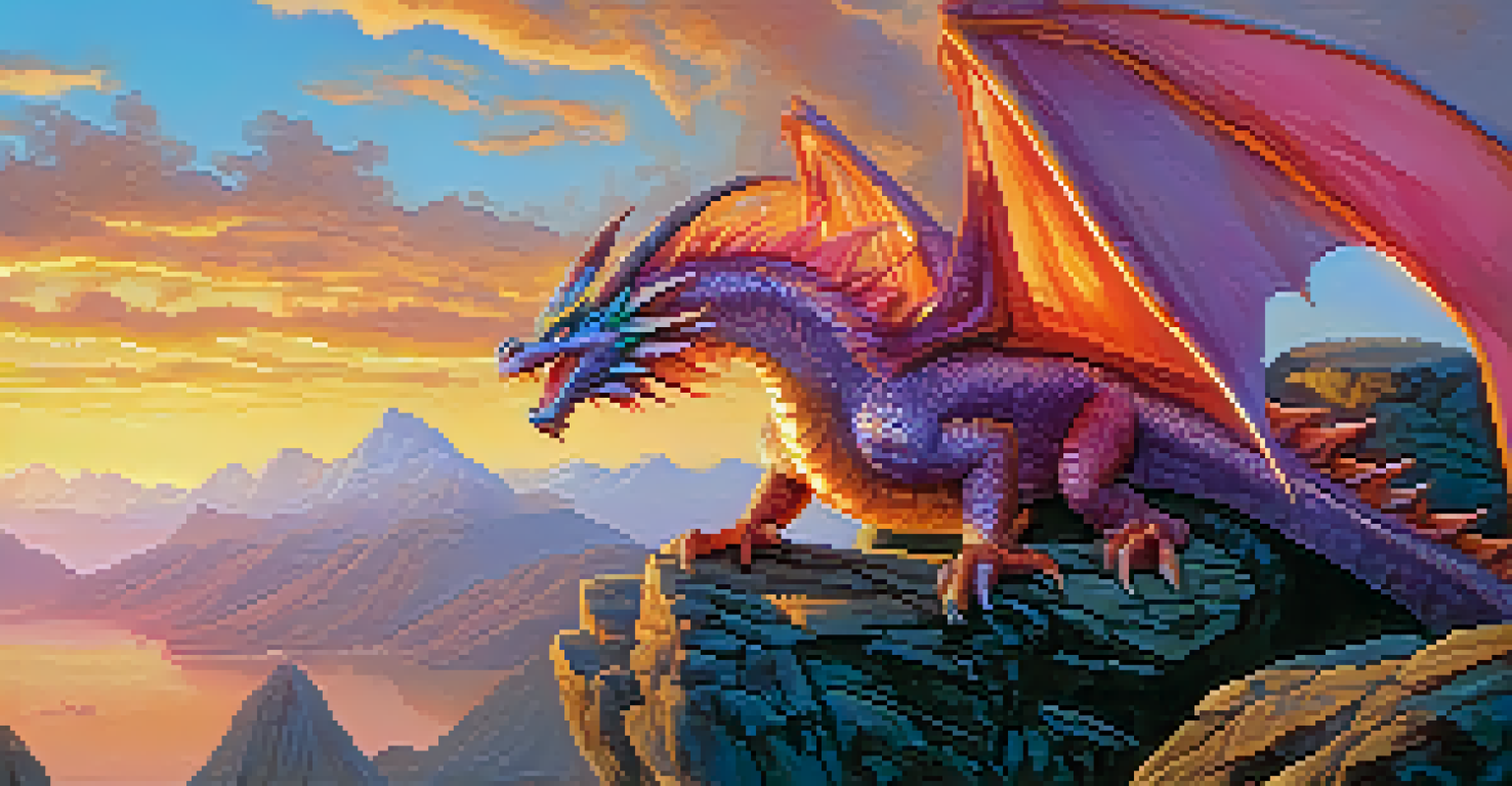Fantasy Films: From Mythical Beginnings to Modern Adventures

The Roots of Fantasy: Myths and Legends
Fantasy films have deep roots in ancient myths and legends. Cultures around the world have shared stories of gods, monsters, and magical realms that captivated audiences long before the advent of cinema. These tales often served as moral lessons or explanations for natural phenomena, laying the groundwork for the fantasy genre we know today.
Fantasy is hardly an escape from reality. It's a way of understanding it.
For instance, Greek mythology introduced us to epic narratives filled with heroic figures like Hercules and tragic tales like the Iliad. These timeless stories have influenced countless films, proving that the allure of the fantastical has been a part of human storytelling for centuries.
As we transitioned into the age of cinema, filmmakers began to adapt these age-old narratives, breathing new life into them and reimagining them for modern audiences. This melding of ancient myth and contemporary storytelling has shaped the fantasy film landscape, making it an enduring genre.
The Golden Age of Fantasy Films
The Golden Age of fantasy films emerged in the 1930s and 1940s, marked by a surge of creativity and innovation. Movies like 'The Wizard of Oz' not only captivated audiences with their vibrant visuals but also introduced them to fantastical realms filled with memorable characters. This era set the stage for the rich tapestry of fantasy narratives to come.

During this time, filmmakers began to explore the boundaries of imagination by utilizing special effects, which were groundbreaking for their time. The use of technicolor and innovative set designs allowed stories to leap off the screen, enchanting viewers and transporting them to other worlds.
Fantasy Films Rooted in Mythology
Ancient myths and legends have profoundly influenced the fantasy genre, shaping narratives that resonate with audiences across cultures.
As audiences flocked to theaters, the popularity of fantasy films laid the groundwork for future generations of filmmakers. These early successes proved that the genre could thrive, paving the way for the iconic fantasy films that would follow.
The Rise of Animation in Fantasy Films
Animation revolutionized the fantasy film genre, allowing creators to bring the most fantastical ideas to life. Beginning with Disney’s classic animated features like 'Snow White and the Seven Dwarfs,' animation offered a unique platform to explore magical themes and vibrant characters. These films became beloved classics, adored by children and adults alike.
The magic of fantasy is that it allows us to explore our deepest fears and greatest hopes in ways that are both entertaining and enlightening.
The freedom of animation meant that filmmakers could create worlds limited only by their imagination, free from the constraints of live-action. This ability to visualize dreams and fantasies resonated with audiences, making animated fantasy films an essential part of the genre's evolution.
As technology advanced, other studios began to follow suit, leading to a new wave of animated fantasy films. From Pixar’s groundbreaking storytelling to Studio Ghibli’s enchanting artistry, animation has carved a permanent place in the heart of fantasy cinema.
Modern Fantasy: Technology Meets Imagination
The modern era of fantasy films has been heavily influenced by advancements in technology, particularly CGI. With the ability to create stunning visuals and intricate worlds, filmmakers can now bring even the most ambitious stories to life. Movies like 'The Lord of the Rings' trilogy broke new ground, combining practical effects with cutting-edge digital technology to create immersive experiences.
This technological revolution has opened the door to new storytelling possibilities, allowing for elaborate landscapes and fantastical creatures that were once only dreams on paper. Audiences are now treated to breathtaking visuals that draw them into the narrative, heightening the sense of wonder that is intrinsic to fantasy.
Animation Revolutionizes Fantasy
The rise of animation has allowed filmmakers to create vibrant, imaginative worlds that captivate both children and adults alike.
Moreover, this blend of technology and imagination has led to an expansion of the genre, with fantasy films exploring diverse themes and complex characters. The modern fantasy landscape is richer and more varied than ever, appealing to a broader audience and continuing to push the boundaries of what is possible.
The Influence of Literature on Fantasy Films
Literature has been a significant source of inspiration for fantasy films, with many beloved novels being adapted for the big screen. From J.K. Rowling's 'Harry Potter' series to J.R.R. Tolkien's 'The Hobbit,' these adaptations have not only introduced audiences to captivating stories but also sparked interest in the original texts.
These literary adaptations often bring renewed attention to the source material, encouraging readers to delve into the books that inspired their favorite films. This synergy between literature and film enriches the fantasy genre, allowing for deeper exploration of themes and characters.
Moreover, adaptations often introduce new audiences to literary works, bridging the gap between different forms of storytelling. As filmmakers continue to draw from the vast well of literary fantasy, the genre remains vibrant and engaging, ensuring that stories continue to evolve.
Diversity in Fantasy: More Voices and Stories
In recent years, the fantasy genre has seen a growing emphasis on diversity, with more stories being told from various cultural perspectives. Filmmakers are increasingly recognizing the importance of representation, allowing for a broader array of voices and narratives to emerge. This shift enriches the genre, offering audiences fresh perspectives and experiences.
Movies like 'Black Panther' and 'Coco' have demonstrated how fantasy can intertwine with cultural heritage, celebrating traditions while telling captivating stories. This approach not only broadens the appeal of fantasy films but also fosters a greater understanding of different cultures and histories.
Diversity Expands Fantasy Storytelling
Recent trends in the fantasy genre emphasize diverse perspectives, enriching narratives and offering audiences fresh cultural experiences.
As the genre continues to evolve, it becomes clear that a diverse range of stories can coexist within the fantasy realm. The richness of these narratives enhances the fantasy landscape, drawing in audiences from all walks of life and showcasing the universal allure of imaginative storytelling.
The Future of Fantasy Films: What Lies Ahead?
As we look to the future, it's exciting to ponder what new adventures await in the fantasy film genre. With ongoing advancements in technology, filmmakers will continue to push the boundaries of imagination, creating ever more immersive experiences for audiences. Innovations like virtual reality and augmented reality may soon redefine how we engage with fantasy narratives.
Moreover, the growing trend of streaming platforms investing in original fantasy content suggests that the genre will continue to flourish. These platforms are providing creators with the resources to explore unique stories and characters, allowing for a diverse range of narratives to emerge.

Ultimately, the enduring appeal of fantasy films lies in their ability to transport us to worlds beyond our own. As long as there are stories to tell, the magic of fantasy will continue to captivate audiences, inspiring generations to dream, imagine, and believe in the impossible.